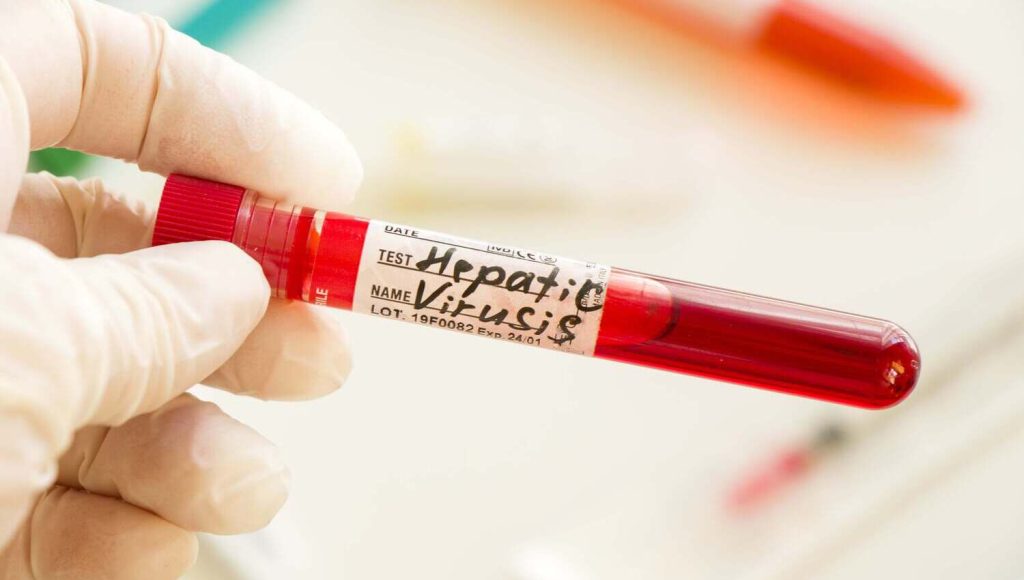Medical Marijuana For Hepatitis C
- John DiBella
- Published: September 15, 2023
- Fact-checked by Dr. Desiree Granados

Hepatitis C, a viral infection that wreaks havoc on the liver, has long been a significant health concern worldwide. Traditional treatments have been limited and often come with a host of side effects, leading researchers and patients alike to explore alternative remedies.
One such alternative that has stirred up both excitement and controversy is medical marijuana.
What is Hepatitis C and What Causes It?
Hepatitis C is a viral infection that primarily affects the liver and is caused by the Hepatitis C virus (HCV). It can range from a mild illness lasting a few weeks, referred to as acute Hepatitis C, to a serious, lifelong illness known as chronic Hepatitis C.
The virus is typically transmitted through direct contact with the blood of an individual who is infected. This can occur through sharing needles, syringes, or other equipment used to inject drugs, as well as needlestick injuries in healthcare settings, being born to a mother with Hepatitis C, or, less commonly, through sexual contact.
Symptoms of Hepatitis C
Many people with Hepatitis C do not experience symptoms until the virus has caused substantial liver damage. When symptoms do appear, they may include fatigue, loss of appetite, nausea, abdominal pain, dark urine, gray-colored stool, joint pain, and jaundice (a yellowing of the skin and eyes).
Chronic Hepatitis C infection can lead to serious complications such as cirrhosis (scarring of the liver), liver cancer, and liver failure. It’s crucial to seek medical help if any of these symptoms arise.

How is Hepatitis C Treated?
Hepatitis C is traditionally treated through antiviral medications aimed to clear the virus from the body. The goal of treatment is to have no Hepatitis C virus detected in the body at least 12 weeks after the completion of treatment. Doctors refer to this as a Sustained Virologic Response (SVR), which is considered a cure.
Previously, the treatment of Hepatitis C involved medications with severe side effects, such as interferon and ribavirin. These medications required long treatment durations and often only offered a cure rate of 50%. However, medical advancements have led to the development of new antiviral medications that can cure most people with Hepatitis C and are better tolerated by patients due to fewer side effects and a shorter treatment duration.
Can Medical Marijuana Treat Hepatitis C?
Medical marijuana is not a cure for Hepatitis C, but it has been found to alleviate some of the symptoms associated with the disease and side effects from its treatment. While medical cannabis cannot combat the virus directly, it can mitigate associated symptoms such as nausea, loss of appetite, and pain.
Some patients undergoing antiviral therapy for Hepatitis C also experience severe side effects such as fatigue, depression, and insomnia. Medical marijuana has been reported to ease these side effects, improving the overall quality of life for patients undergoing treatment.
Conclusion
While medical marijuana cannot eradicate the Hepatitis C virus, it has shown promise in alleviating some of the uncomfortable symptoms and side effects associated with both the disease and its traditional treatment. This could potentially improve the quality of life for individuals battling this challenging condition.
Nonetheless, it’s essential to remember that medical marijuana should always be used under the supervision of a healthcare professional. As research continues to explore the full spectrum of benefits and potential risks associated with marijuana use, it’s crucial for patients to remain informed and take an active role in their healthcare.
States Where We Offer Medical Marijuana Card Services
How we reviewed this article:
- Hepatitis C
hzzttps://norml.org/marijuana/library/recent-medical-marijuana-research/hepatitis-c/ - Hepatitis C
https://www.who.int/news-room/fact-sheets/detail/hepatitis-c - Cannabis Use Can Improve Effectiveness of Hepatitis C Therapy
https://www.ucsf.edu/news/2006/09/101623/cannabis-use-can-improve-effectiveness-hepatitis-c-therapy - Hepatitis C
https://www.mayoclinic.org/diseases-conditions/hepatitis-c/symptoms-causes/syc-20354278
Current Version
September 15, 2023
Written By
John DiBella
Fact-checked By
Dr. Desiree Granados
Editorial Process
Our Editorial Process
Other Posts About Medical Marijuana Treatment

John DiBella is the co-founder and CEO at The Sanctuary Wellness Institute. His goal is to foster healthier lifestyles to improve individuals’ quality of life and health span through online medical and non-medical services. When he’s not writing health & wellness articles for The Sanctuary, he enjoys hiking, camping, surfing and sailing.







